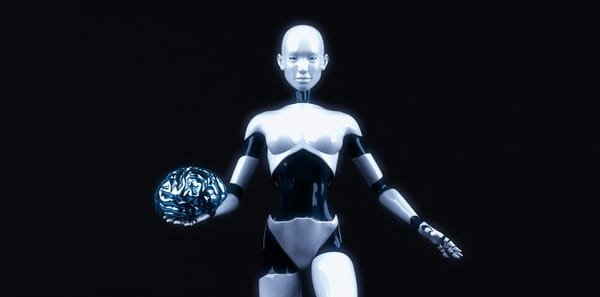The Role of AI in Modern Recruitment Strategies
Artificial intelligence (AI) is not just an innovation but also a need in today's recruitment environment. Organizations' approaches to talent acquisition are changing as a result, and procedures are becoming more effective, egalitarian, and efficient. This essay examines the complex role that artificial intelligence (AI) plays in contemporary hiring practices and offers insights into how AI is changing the human resources sector.
Transforming the Sourcing of Candidates
Candidate sourcing has been transformed by AI-powered technologies. In a matter of minutes, these systems can go through thousands of resumes and online profiles, selecting possible candidates based on their qualifications, experience, and other pertinent factors. By greatly accelerating the hiring process and expanding the talent pool, automation makes sure that no qualified applicant is passed over because of prejudice or oversight on the part of humans.
Improving the Selection of Candidates
One of the most time-consuming parts of hiring is the screening process. In order to create a more comprehensive picture of a candidate's fitness for a position, AI algorithms can examine not only resumes but also the candidate's online activity and involvement in professional forums. This procedure guarantees a more impartial screening procedure while cutting down on the initial time and effort required from human recruiters.
Improving Candidate Experience
Additionally, AI is essential to enhancing the applicant experience. For example, chatbots can reply to questions from candidates right away, keeping them informed and involved in the hiring process. Candidates' perceptions of the organization can be enhanced, and their sense of value increased through these AI-powered interactions.
Using Predictive Analytics to Make Better Decisions
Another area where AI is having a big impact is predictive analytics. AI can forecast things like a candidate's success on the job, whether they will accept an offer, and how long they might stay with the organization by examining historical recruitment data. This predictive ability lowers turnover and improves the caliber of hires by empowering recruiters to make better judgments.
Minimizing Implicit Bias
AI's potential to lessen unconscious prejudice in hiring is one of the biggest advantages. AI systems can guarantee a more inclusive and varied applicant selection process by concentrating on metrics and criteria that are driven by data. This improves the company's reputation as an equitable employer in addition to contributing to the development of a more diverse staff.
Continuous Learning and Adaptation
AI systems are dynamic; they are always learning and changing. These systems' screening and prediction skills improve with the amount of data they process. Because of this feature of continuous improvement, hiring processes are continuously improved as AI technologies grow more effective and efficient over time.
Difficulties and Ethical Issues
While AI has many advantages, there are drawbacks as well. There are moral issues to take into account, especially in relation to data privacy and algorithmic prejudice. Organizations must utilize AI ethically, making sure algorithms are impartial, transparent, and consistent with data protection regulations.
The Prospects for Future Hiring
In the future, artificial intelligence (AI) will likely play an even bigger part in hiring. We may anticipate increasingly advanced AI technologies that provide deeper insights and significantly expedite the hiring process as technology advances. But the human factor will always be important. When it comes to hiring, AI is a tool to support human judgment and empathy, not to replace it.
The use of artificial intelligence (AI) in contemporary recruitment tactics signifies a paradigm shift in the way companies handle talent acquisition. Artificial intelligence (AI) is a potent technology that improves the efficacy and efficiency of the hiring process by decreasing bias, expediting applicant sourcing and screening, and enhancing candidate experience. It's critical that we use digital technologies wisely as we navigate this new era, making sure they enhance rather than replace human expertise.




